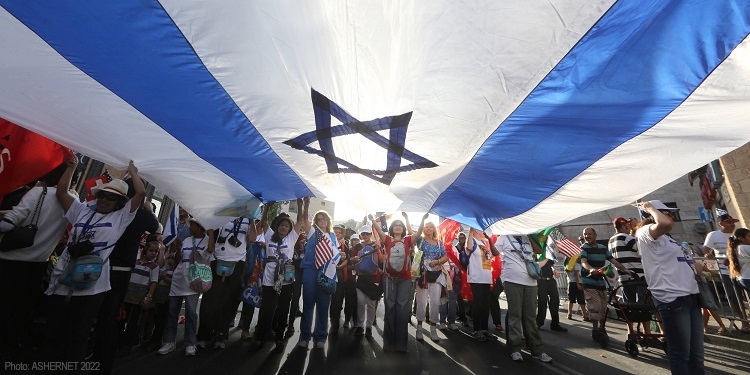The Center of Spiritual Wholeness
Yael Eckstein | May 18, 2023

Jerusalem is built like a city
that is closely compacted together. —Psalm 122:3
This week, Israel celebrates Yom Yerushalayim, Jerusalem Day, commemorating the reunification of the city, ending 19 years of separation into East and West Jerusalem. This is one of five devotions looking at the spiritual and historical significance of God’s Holy City.
As we approach Jerusalem Day, celebrating the reunification of Jerusalem following the Six-Day War in 1967, I’ve been spending extra time walking the streets of the Old City. The other day I was walking in the area of Mount Zion, where the Zion Gate stands as one of the entrances to the city.
If you look closely at the Zion Gate, you’ll see hundreds of holes and indentations in the stone all around the opening of the gate. These holes are from bullets fired during the fighting in 1967. While some may see these chipped and broken spots as harming the appearance of the Old City walls, to me they are a testimony to the courage and heroism of those Israeli soldiers who laid down their lives to reunify God’s Holy City.
As I stood and stared at the bullet holes, I was reminded of a specific verse in Psalms. David wrote of his beloved capital, “Jerusalem is built like a city that is closely compacted together.” The Hebrew for “closely compacted together” says “bound together in unity.” In fact, this is how the verse is translated in many English versions of the Bible.
The Center of Spiritual Wholeness
This brings up an interesting point. The name Jerusalem is made up of two words. Jeru, Yeru in Hebrew, means “you will see.” Salem, or shalem, is the Hebrew word for “whole.” But in the Hebrew, name of Jerusalem is Yerushalayim. Shalayim is a form of the word shalem—whole—which actually means “double wholeness.” Put together, the name of Jerusalem means “You will see a double wholeness.”
Think about that. The name of God’s city is actually a prophecy or blessing for the future. The name itself speaks of a future time when the city will be unified and whole. But it doesn’t stop there. The wholeness is doubled. What does this mean?
Ever since King David, Jerusalem has been the capital city of Israel. Reunification of Jerusalem under Jewish sovereignty represents the wholeness of the Jewish people as a nation. But Jerusalem is more than that. It is also the epicenter of God’s kingdom on earth. When Jerusalem is truly whole and rebuilt in the future, it will also become the center of spiritual wholeness for the entire world. A double wholeness indeed!
Your Turn:
Join the Jewish people on the anniversary of the reunification of Jerusalem by reading Psalms 113-118 to praise God for all He does to bring redemption to His people and the world.
